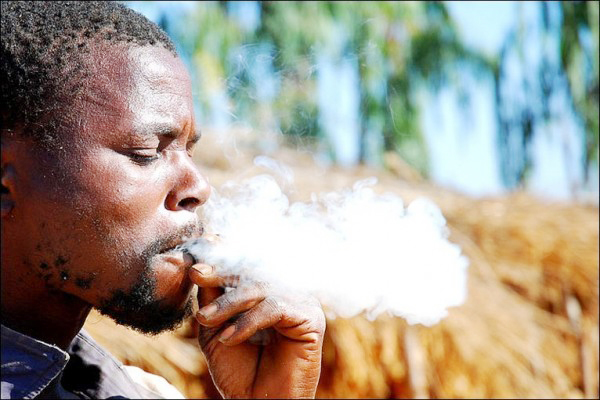Substance addiction can be termed as a disorder where the victims uncontrollably use substances like alcohol, drugs, or more, leading to distorted thinking and behaviours. AGNES KASEMIIRE examines various addictions, causes and management.
Joshua Nuwagaba, a young corporate man in his late 30s, used to drink alcohol throughout the day.
At his place of work, he would take a bottle of juice laced with alcohol, which he would sip as he worked.
At lunch time, Nuwagaba would go to a nearby kiosk and refill his bottle with a mixture of soda and waragi, and his workmates always assumed that he was drinking soda.
Every evening after work, he patronised a bar in his neighbourhood where he would at times be given alcohol on credit whenever he lacked money.
At parties, he would drink until he passed out. He told his friends that he could not perform to his best without alcohol.
Whenever he failed to get alcohol, he would be become irritable, restless and aggressive.
Nuwagaba’s dilemma was not any different from that of 25–year- old Patrick Okello, a chain-smoker.
Okello says he cannot do without cigarettes. He puffs on cigarettes throughout the day.
Dr Godfrey Zari Rukundo, a child and adolescent psychiatrist working with Mbarara University of Science and Technology (MUST), describes Nuwagaba and Okello’s condition as substance addiction.

What is addiction?
Rukundo describes addition as a brain disease where someone who is dependent on alcohol, drugs and other substances cannot stop taking them or do without them.
He says people battling addiction have a tendency of taking the substance in increasing amounts because their bodies are used to it and they, therefore, crave for more.
“For example if an individual is used to taking one bottle of beer and getting drunk, overtime they require more bottles to get the same effect,” Rukundo says.
Signs of addiction
Rogers Nsereko, a clinical psychologist working at Butabika National Referral Mental Hospital, says different drugs have different side effects.
He says alcohol addiction gives one the desire to take it the more especially in the morning as a remedy to stabilise their day or as well as to counteract the shaking (shivering).
Nsereko says the shaking is as a result of the body demanding for more substance.
Withdrawal symptoms
Rukundo adds that once the body gets used to a substance and suddenly stops taking it resulting in a reduction in the body, then they begin to experience withdrawal symptoms, which include being restless, and hand and body shaking.
Immediately when the person takes the alcohol, these symptoms go away.
He says people struggling with addiction are unable to control their actions or make rational decisions about their behavior, even when they face negative consequences.
“Someone who is addicted or dependent on a substance cannot stop. They try cutting down the use of the substance, but resume shortly,” Rukundo says; “An addict becomes angry when relatives or friends comment about how much money they spend on alcohol, which sometimes results into domestic violence.”
Nsereko says addicts tend to ignore all other things and give priority to what they are addicted to. He says they may prefer to buy alcohol instead of food.
It is common for an addict to display withdrawal symptoms when they cannot access the substance they are addicted to.
It is through interaction that you realise they have neglected their commitments and are instead reoccupied with what they are addicted to.
Nsereko explains that often, substance addicts promise to stop taking the substance, but later resume. This makes them feel guilty.
Forms of addiction
Psychiatrist and lecturer at Makerere University College of Health Sciences, Dr Raymond Odokonyero, explains that addiction manifests in two

categories:
substance-related addiction which includes alcohol, tobacco, nicotine, cocaine and cannabis (enjaga).
The other forms such as behavioral addition which includes: addiction to sex, pornography, food, shopping, sports and excessive work.
Odokonyero names the commonly used addiction substances in Uganda as alcohol, tobacco and cannabis.
How big is the problem?
Rukundo says addiction to substance starts in the teen years, and by the time the family members realise that one is addicted, they are above 20 years of age.
Although there are no epidemiological studies done yet in Uganda, data from Butabika National Referral Mental Hospital indicates that out of the 150 addicts registered at the alcohol and drug addiction unit weekly, about 15 to 20 of these are purely addicted to alcohol.
Most affected age group
Rukundo affirms that the most affected age group are young people aged between 15 and 35 years, with the most affected group being those between 18 and 24 years.
This is explainable because young people get challenges of social disconnect.
They always feel they are not appreciated and are rarely understood.
As a result, they begin to isolate themselves and eventually join groups of people drinking, smoking and using all sorts of drugs.

Who is prone?
Nsereko thinks people who have gone through adverse life experience, for example abuse in early childhood, are likely to become addicts.
The other group of people at higher risk of developing addiction are those who are emotionally and sexually abused in childhood.
Aside, people who are depressed look at alcohol and other substances as a solution to help them escape their underlying psychiatric problems, as well as those who have personality challenges.
For example, people who have difficulty in regulating their emotions, difficult in tolerating distress and those without interpersonal skills and are shy to talk to people without having taken any substance like alcohol.
Nsereko adds that people who are not courageous enough to address the public, resort to using substances in order to gain confidence.
In addition, Rukundo says people who are bored and may not derive pleasure from anything else useful are prone to addition.
Adolescents and young adults rank high on the list because given their stage, they tend to explore many things, have a lot of energy and are very inquisitive; so, they want to discover. Besides, they are not busy and have all the time.
He emphasises that when one is addicted to a substance, they have increased risk of getting addicted to other things.
For example if one is addicted to alcohol, chances are high that they will get addicted to cocaine as well.
Complications of alcohol
Addiction affects most of the body organs. Rukundo says prolonged use of alcohol may cause cancer of the liver, pancreases, stomach as well as small intestines.
Excessive intake of alcohol will result into weight loss and developing ulcers, especially if one is taking alcohol without eating a well- balanced diet.
From the social point of view, Rukundo says a person suffering from addiction is likely to lose their job because of absconding duty.
Domestic violence, homicide, suicide and accidents are some of the dangers that arise from addictions.
Addiction to cigarettes
Nsereko says addiction to cigarettes is common among young people in the age bracket of 14 and 30 years because of peer pressure and curiosity.
He estimates that about 40 per cent of the 150 addicts registered weekly at the alcohol and drug unit at Butabika National Referral Mental Hospital are grappling with cigarette addiction.
People addicted to cigarettes display symptoms of restlessness, become agitated, irritable out of the blue and will calm down after they have smoked.
Nsereko says cigarrete smoking has for long been associated with cancer of the throat and lungs.
Long life smokers also get health complications involving their arteries, which puts them at increased risk of heart disease. It may also cause tuberculosis.
How substances work
Dr Odokonyero says substances like alcohol and drugs work by altering the functioning of the neuro transmitters (chemicals that carry messages to the brain).
So, one is unable to perceive things properly and make meaning out of them.
The substances change the area of the brain that controls pleasure. For instance when someone takes alcohol they become excited, drunk meaning that part of the brain has been activated.
Odokonyero explains that it is for this reason that people who are addicts keep taking the same substances even when they know it is dangerous.
Management
According to Odokonyero, addiction is treatable at free cost in mental health hospitals.
The same patients can access treatment and other therapies like counseling of different forms from the available rehabilitation centers around the country.
The addicts are also equipped with skills to meet challenging situations like saying no to a party invitation, to a bar and how to deal with depression, anger and craving.
However, Odokonyero says treating addiction takes a long process, which may require a victim to undergo two weeks of detoxing; a process of eliminating toxins of the substances from the body before introducing other therapies like counseling.
Fortunately for Nuwagaba, he was taken to Hope and Beyond Rehabiliation centre in Rubaga, where he received therapy.
Upon admission, he underwent psychological assessment to establish the depth of addiction. Several other tests including liver and kidney functionality were conducted. He was given detoxification to flush out toxins to help manage withdrawals.
After two weeks of the detox plan, he was attached to a counselor, who took him through a recovery plan. He later was introduced to spiritual and occupational programmes, which helped him develop capentary skills. He has so far been sober for the last three years.
For Okello’s case, rehabilitation sessions like necotine cessation programme, and the good news is that he is responding well.
Dealing with an addict
Dr Rukundo says one way of dealing with an addict is through counseling.
During the counseling session, health workers try to motivate the victims of addiction to stop drinking.
However, stopping them becomes challenging especially if the victim is not willing.
Nevertheless, the addicts are counseled and encouraged to look at the consequences they have suffered and weigh them against the health benefits.
Nsereko says family plays a key role. Family members are discouraged from blaming the addicts and the addicts themselves are told to guard against blaming themselves, because it makes them hate themselves and even indulge in substance consumption the more.
“Usually most of them come in feeling guilty. So what they want at that point is love, forgiveness and motivation for them to do away with drinking and use of drugs,” he says.
Rukundo discourages family members and friends against supporting addicts by providing the substance they are addicted to or accompanying them to buy it, a practice he terms as negative support.
“If someone is addicted to alcohol and they ask for money to go drinking, you should instead provide a soft drink like fruit juice or tea, so that they can stop completely,” he adds.
Prevention
Dr Odokonyero says the best way to prevent addiction is not to start taking the substance at all.
He advises young people to keep themselves busy so as not to be lured into the practice.
He says it is important that schools as well as parents talk to their children about the dangers involved in taking alcohol and drugs.
Nsereko is of the view that availability of these drugs should be controlled through policies and laws.






















